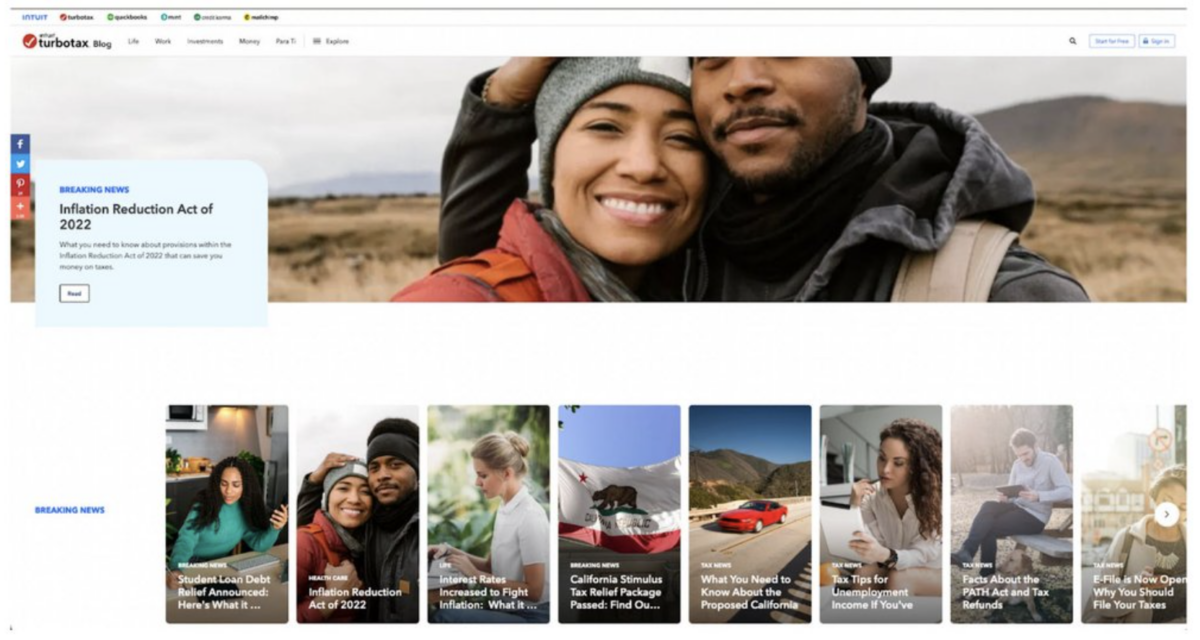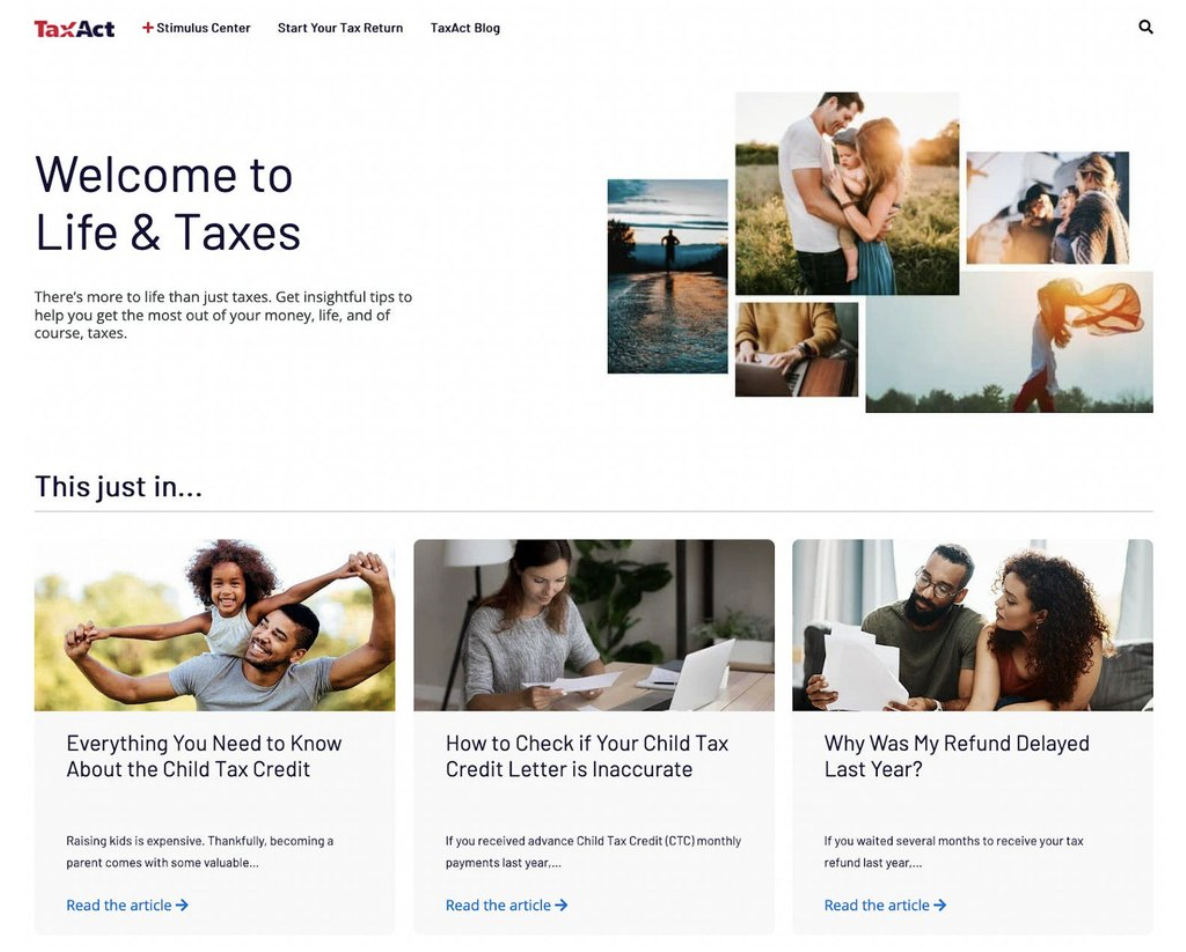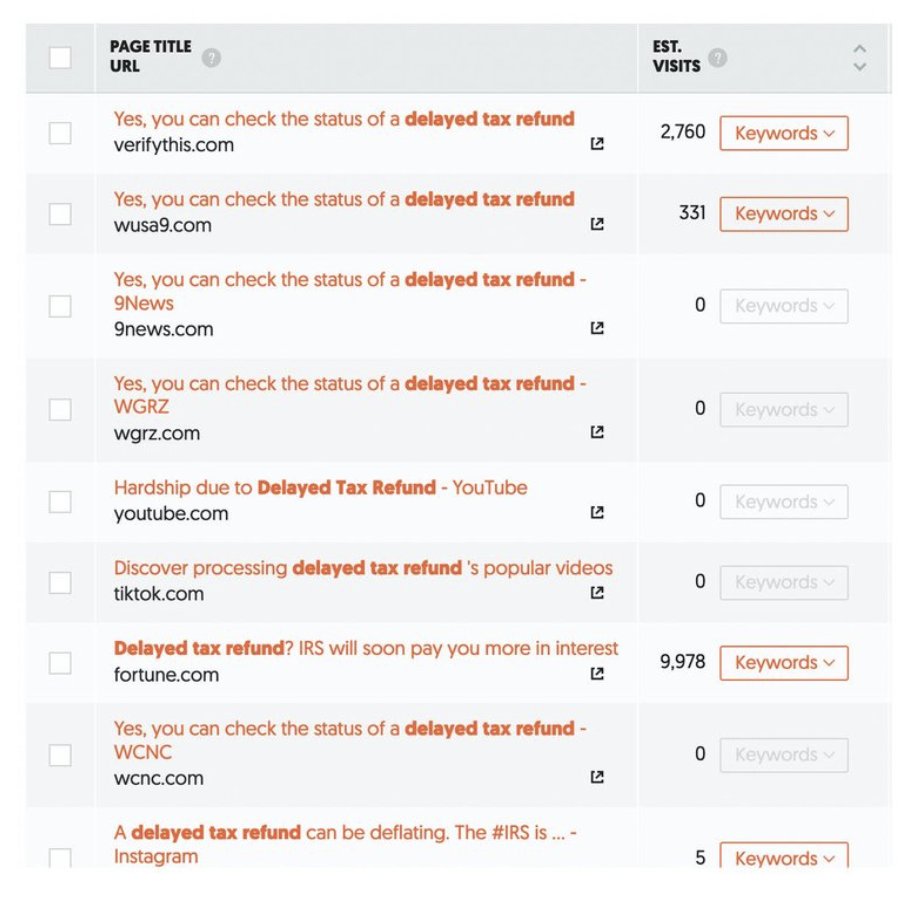Steal this blog
Your competitors — especially your biggest competitors — publish content on the regular.
They may even invest tens of thousands of dollars to rank highly on Google.
Does yours?
Even if your brand doesn’t have similar resources or ad-budget, you can glean enough information from your competitors content marketing efforts to get hot, trending, SEO-driven topics that your target market wants to read.
If you want to know how to use competitor blogs to create content ideas, keep reading!
Be the content marketer you want to see
In this Insight, we’re showing you quick and easy ways to raid competitors’ content to generate more unique content ideas for your brand.
Let’s say, for example, you are a tax preparer and your readers are heading into year-end tax planning. Of course, you want to write relevant content to reflect the latest news, but you also want to balance it with a trove of useful information.
In that case, start by looking at competitors to see what they’re writing about.
First, you might land on the TurboTax blog, where you’re immediately presented with the “Breaking News” that tax filers want to know about most.
It includes info on the Inflation Reduction Act, student loan debt relief, and various pieces on interest rates and inflation.

Next, you navigate to the TaxAct blog, where you notice they have flipped a familiar expression (death and taxes) on its head — both inspiring and clever.

Topics include two pieces on the child tax credit and one about reasons your refund might be delayed.
Finally, you take a look at what H&R Block is up to.

Scrolling below the fold reveals topics on employees vs. contractors, tax return delays, tax problems for gig economy workers, and audit information.
All three provide useful “all-in-one” destinations for finding information. All three have effective on-page SEO, meaning their content is categorized and well-organized.
For the target audience, the TurboTax blog has the best “breaking news” section and takes advantage of current events. But if you want to build a library of more evergreen topics, perhaps “Why your refund was delayed” is a better choice as it appears on two of the three blogs.
Based on this competitor research and the time of year, we’d write about refund delays, including any information learned from these sites. Next, we’d find opportunities to backlink to our own blog’s other useful tax-filing resource pages.
Quick note: If you notice a topic your competition has not written about but should have, start with that first.
3 little questions for big results
You cannot ethically swipe word-for-word bullets from your competitors and hit publish. You have to take one more step. The good news is, this will make your content even better than the pieces you’re swiping.
So ask yourself the following essential questions once you’ve read your competitors’ blogs:
1. What is your unique takeaway?
2. What technical information did they miss?
3. What expert strategy did they miss reporting?
There is absolutely no substitute for your expert advice and unique point of view.
So jot down your answers to these questions because this is how you will begin to form your own unique and valuable articles on any subject.
2 simple tools to bring it all together
Next, look up some keyword ideas on Ubersuggest, a free tool from one our fave marketing gurus, Neil Patel.
We entered “delayed tax refund” into the search and came up with the following top results.

Clicking on the “Keywords” drop-down menu to the left of the results reveals the following keyword ideas:

This will give you some keyword opportunities you can consider naturally incorporating into your writing.
Remember, it’s not about keyword stuffing, but the totaly unique value, voice, and insight that only you can bring to your audience as an expert.
Finally, when it’s time to write the article you can swipe one more tool from Finance Studio.
To help you develop the habit of writing like a digital marketer, we’ve created a downloadable on-page SEO tool to ensure you remember all the necessary elements to get recognized by Google’s search-ranking algorithm. It’s free to our readers at this link.